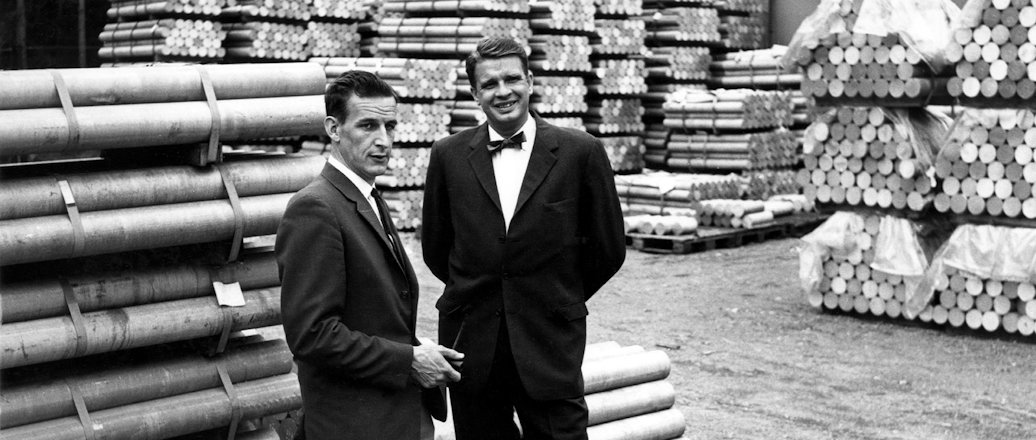Skandinaviska Aluminium Profiler AB, better known as Sapa, was registered with the Patent and Registration Office (PRV) in 1962, but operations began the following year when Lars Bergenhem and Nils Bouveng built the first press hall in Vetlanda. The company grew quickly and in a short time became a player to be reckoned with in northern Europe, thanks in large part to the fact that it was the first press plant in the Nordics with extrusion and anodizing under the same roof. Within a few years, the press was running 7 days a week and to meet the great demand, Sapa started up additional factories in Finspång and Sjunnen, among others. In 2013, through a merger, Sapa and Hydro became the world leader in extruded aluminium profiles. Since 2017, Hydro owns the entire operation and the Swedish part is part of the global Hydro Extrusions business area.
A world of profiles
In 60 years, most things have changed, including the company name, owners and manufacturing methods, but the factories in Vetlanda and Finspång and the remelter in Sjunnen still form central parts of Hydro Extrusion's operations in northern Europe. Then as now, everything revolves around the light, recyclable and versatile material – aluminium. Something that in turn is extruded into profiles that are used in windows, doors, electronics, vehicles, furniture and thousands of other products.
"Aluminium is the foundation of our history, but it is not the material itself that has built our success. Entrepreneurship, collaboration and curiosity seasoned with constant innovation, research and development enable us to celebrate 60 years as the leading player in our industry. That is something to be proud of and worth celebrating. By continuing to lead the way and explore new opportunities, we honor our customers and all employees who have been involved in building this company to what it is today," says Jonas Bjuhr, CEO, Hydro Extrusion Sweden.
Early in thought and action
Over the years, Sapa and Hydro Extrusions have always been far ahead in innovation and development. Above all, there has always been a desire to improve their production methods and test new techniques. This concerns, for example, the introduction of the joining method FSW (Friction Stir Welding) on an industrial scale. Today, Hydro is the world leader in FSW. They have also experimented with different processing methods, set up their own research centers and developed alloys with low climate impact. Thanks to a conscious investment in renewable energy sources and the remelting of scrap, the company can today offer aluminium with one of the lowest emission levels in the world.
"We like to challenge ourselves and push the limits. Properties that create an even better production, working environment and customer solution. The advantage of aluminium is that we are constantly finding new uses and it can be recycled endlessly. It bodes well for future birthdays when the world must change to sustainable production and consumption," says Jonas Bjuhr.
: 18 August 2023








